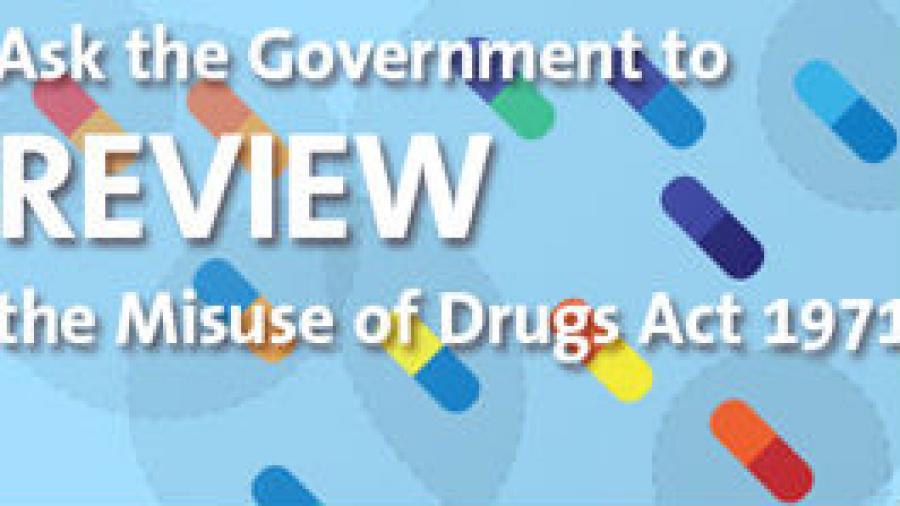Her E-petition, newly endorsed by Russell Brand and Richard Branson, as well as several drugs experts and charities, calls for an independent assessment of the 1971 Misuse of Drugs Act. With less than a week to go, the number of signatures is rising rapidly. Yesterday it passed the 50,000 mark, and if 100,000 people have signed by Saturday, she will be able to force a debate and vote in Parliament.
Lucas has also requested a meeting with the Deputy Prime Minister after he called for a “proper debate about the need for a different strategy” over the weekend.
Caroline Lucas, Green Party MP for Brighton Pavilion, said:
“The ‘War on Drugs’ has been an abject failure.
“Prohibition is costing lives, as well as billions of pounds of taxpayers’ money. It has created a situation in which some of the most marginalised people in our society are committing crime to fund their addiction. A fresh look at our drug laws is the first step towards a sane, evidence-based policy.
“Addiction has to be approached primarily as a health issue, not a criminal justice issue. Emphasising punishment rather than treatment is expensive and counterproductive.
“Our drug laws are over 40 years old We therefore have no idea whether current drug policy is an effective use of public money or whether money is simply being thrown down the drain.”
At 12pm tomorrow there will be a social media ‘Thunderclap’ to promote the campaign. Largely thanks to Richard Branson’s support, over four million people will receive a message prompting them to sign the petition.
Sign the E-petition
Be part of the Thunderclap
The Costs of Drug Use
- The most recent (for the year 2003/04) Home Office estimate of the annual social and economic cost of Class A drug use in England was £15.4 billion,[i]
- The most recent Home Office research estimated that between a third and a half of all acquisitive crime is committed by offenders who use heroin, cocaine or crack cocaine. There are no equivalent figures for Class B and Class C drug use. [ii]
- An estimated £4.036 billion of the cost of drug-related crime is the criminal justice costs of arresting, prosecuting and imprisoning drug users. [iii]
- The remainder are ‘victim costs’ of crime It is estimated that fraud accounts for more than a third of Class A drug-related crime costs, totalling £4.888 billion. [iv]
- Burglary accounts for more than a quarter of the cost at £4.07 billion followed by robbery at £2.467 billion and shoplifting at £1.197 billion. The cost of drug-related arrests is £535 million [v]
- The research by the Government into the total economic and social costs of drug use failed to include the cost of the drug strategy itself, which according to the 2002 drug strategy was £1.344 billion in 2003/04. This budget was spent on prevention, enforcement of drugs laws and treatment [vi]
- Therefore, the charitable think tank Transform estimates the total cost of Class A drug use (heroin and cocaine) under prohibition in England and Wales in 2003/04 was £16.785 billion. [vii]
- A 2013 study which evaluated the costs and benefits of introducing a licensed and regulated marijuana market in England and Wales concluded that the most plausible result of reforming marijuana’s legal status would be a net benefit of £100-£415 million and that, additionally, the tax intake would be £400-£900 million.[viii]
- Over half of the people in prison are thought to have serious drug problems.[ix]
- Rates of cannabis use by young people in Britain are amongst the highest in Europe.[x]
- Across England and Wales, only around 7% of drug stop and searches end in arrest. As a result of almost 550,000 stop and searches for drugs in 2009/10, only 40,000 people were arrested, wasting police time and resources [xi]
An Evidence Based Approach
- There has never been an impact assessment of the 1971 Misuse of Drugs Act.
- Nor has there been a cost benefit assessment, or any attempt to compare its effectiveness in reducing the societal, economic or health costs of drug misuse with alternatives, such as decriminalisation of drug use.
Decriminalisation
- The legal status of drugs has little effect on people’s decision to use them, as research by the Journal of Substance Use has shown [xii]
- An investigation by the drug charity Release in 2012 looked at 21 jurisdictions that had adopted some form of decriminalisation of drug possession. Overwhelmingly, the research showed that such an approach does not lead to an increase in drug use and that, by not criminalising those who use drugs, there were improved outcomes in terms of employment and relationships, reduced stigma, and people were less likely to enter or re-enter the criminal justice system, creating significant financial savings [xiii]
- The UN Office on Drugs and Crime admits that the war on drugs has had terrible ‘unintended’ consequences[xiv]
[i] https://www.gov.uk/government/publications/financial-cost-of-acquisitive-crime-caused-by-class-a-drug-users-in-the-uk
[ii] https://www.gov.uk/government/publications/financial-cost-of-acquisitive-crime-caused-by-class-a-drug-users-in-the-uk




Join The Discussion